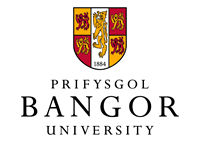Mapping the brain changes that follow injury to the nerves of the hand and their functional significance.
Supervisor: Dr Ken Valyear
Host: School of Human and Behavioural Sciences, Bangor University, Wales, UK
Applications are invited for a three-year PhD studentship within the School of Human and Behavioural Sciences, Bangor University. The studentship covers the full cost of tuition fees, plus a maintenance stipend (approx. £16,062 per annum for 3 years) as well as a generous research allowance of up to £750. The studentship can commence any time between October 2022 and January 2023, but with a preferred start date of October 1st.
Project.
Our hands are the primary instruments by which we manually interact with the world, empowered by the nerves that bring to life our experience of touch, temperature, and pain. Injuries to the nerves of the hand are extremely common, with significant and longstanding personal and societal costs. Hand-nerve injuries also change the brain, yet our understanding of these changes and their significance for patient recovery is poor.
This project will involve functional MRI and behavioural testing of patients who have experienced traumatic lacerations and undergone surgical repairs of one or more of the major nerves of the hand. The tests comprise both established and novel methods, with ample opportunities for the appointee to help further develop.
The project’s overarching purpose is to yield new understanding of the mechanisms that drive brain changes after functional disruption of the nerves of the hand and their behavioural significance. This fits with our lab mission to make fundamental-level advancements that will, in turn, help to solve problems of clinical significance.
The project is made possible by our established partnerships with hand surgeons Prof. Vivien Lees and Edwin Jesudason, and the NHS centres MFT and BCUHB. There will be opportunities for the appointee to gain experience with clinical practice in this area.
Person specification.
Requirements: The successful applicant will have a master’s degree in a relevant discipline (e.g., neuroscience, psychology, medical sciences, engineering). Studying for this degree can be in-progress at the time of application.
Strong work ethic and genuine enthusiasm for research are essential, as is the ability to work both independently and cooperatively. Significant experience in programming is highly desirable.
Residency requirements.
This studentship covers in full the tuition fees for British citizens and other nationals who do not require a visa (e.g., Europeans with settled status). International candidates are very welcome to apply; however, they need to contact Dr Ken Valyear ([Email Address Removed]) to discuss the issue of fees.
Further information.
Informal enquiries should be directed to Ken Valyear ([Email Address Removed]).
How to apply:
All applications must be received by Monday 12th September 2022 through our online application system: https://apps.bangor.ac.uk/applicant/
Applications must contain the following documents:
- Covering letter: Include your motivation for applying for this studentship, aspirations beyond conducting a PhD, and any reasons that you feel you are particularly suited to undertaking this project.
- References: Include two letters from academic staff to be submitted in support for this specific application.
- Curriculum Vitae: This should be no longer than two pages.
- Research Proposal: two pages including a clear description of the research questions, hypotheses, the approach to collecting and analysing data, and a proposed timeline.
More Information:
https://www.bangor.ac.uk/psychology/study-with-us/postgraduate-funding/en

 Continue with Facebook
Continue with Facebook



